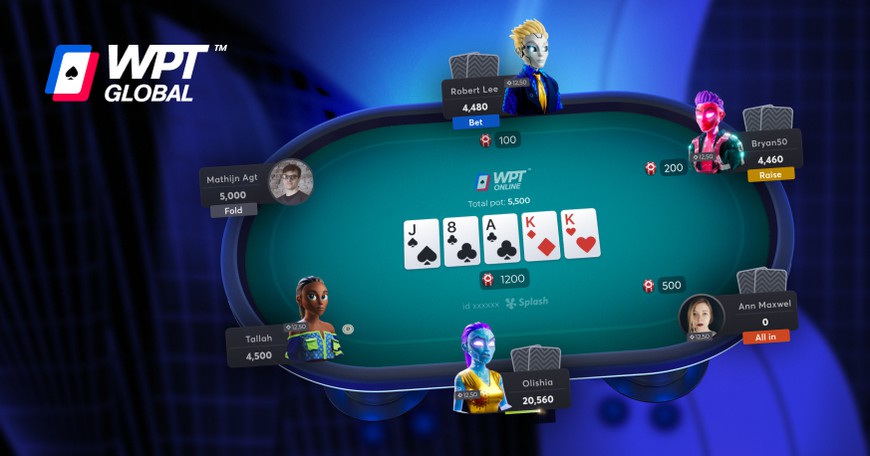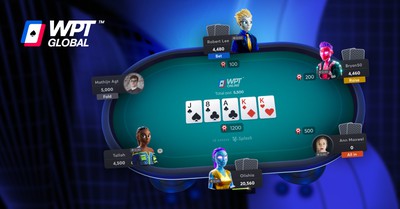

For the first time, WPT Global, the second-largest online poker network, has released details of recent efforts to combat fraudulent play on its site, offering a more transparent look at how it handles game integrity.
As first reported by Poker Industry PRO, the site banned dozens of accounts this year and confiscated hundreds and thousands of dollars from those accounts found to have breached its fair play rules.
The data appears on a newly published Game Integrity: Recently Banned Accounts page on the WPT Global website. According to the update, between January and May 2025, the site seized $166,885.07, all of which was redistributed to affected players.
- Use bonus code
FUSEBONUS - Generous welcome bonus
- Minimum deposit of just $10
The list includes 50 internal user IDs but does not show public-facing screen names. It is labeled as “a selection of accounts we have recently banned,” indicating the list may not be comprehensive. No further details were provided about the nature of the violations.
Still, it is a step not many operators take. WPT Global now joins a relatively short list of poker sites that have shared similar data. PokerStars, GGPoker, 888poker, US-facing offshore network WPN, and PartyPoker have all, at different times, revealed figures related to cheating bans or redistributed funds.
PartyPoker has been doing it regularly for several years. Its most recent update showed 291 accounts banned in 2024 and over $70,000 returned to players, both multi-year highs. But activity slowed down in early 2025, with just 40 accounts banned and $2,700 redistributed in the first quarter. In comparison, WPT Global’s numbers, more than $33,000 per month on average, stand out.
The timing of the update is particularly relevant. Just a few weeks ago, WPT Global banned one of its own streamers after a livestream showed what appeared to be a chart visible on screen, suggesting the use of real-time assistance (RTA). That streamer was Alan Finn, known as “AlanFPoker” on Twitch, who had around 2,700 followers at the time.
Finn has since posted a video on YouTube offering his side of the story. In it, he admits to “passively referencing preflop charts” and accepts responsibility for the mistake, but insists the use was not malicious and that the chart was not consulted on every hand. He also revealed that his PokerStars account was flagged around the same time but was ultimately cleared after an investigation found no rule violations.
Ongoing RTA Debate
Still, it is notable that operators today are taking firm action, even banning accounts over the use of static preflop charts. It reflects a shift in how seriously online poker sites are treating Real-Time Assistance (RTA), a growing concern in recent years. Many operators have updated their game integrity policies and are now drawing firmer lines around what is and is not acceptable.
RTA is a catch-all term that includes any external tool, chart, or reference, static or interactive, that advises the player how to act in certain situations.
Some sites allow basic reference materials, such as preflop starting hand charts that help beginners understand which hands to play from which positions. Others adopt a stricter approach, banning any kind of reference material at the tables, regardless of how simple it is. Across the board, however, systems that offer real-time decision-making assistance, especially those covering post-flop play or complex spots, are universally banned.
What has changed in recent years is the rise of advanced poker solvers. These tools use game theory optimal (GTO) simulations to offer highly detailed and mathematically sound advice. When used during play, they give users an unfair advantage by effectively allowing them to play “perfect” poker in a wide range of scenarios.
The tools themselves are not inherently problematic. All major sites permit their use for study purposes away from the table, and many developers have added restrictions to disable functionality when poker software is running. But these safeguards are not foolproof. Players can still run solver software on a second device, or turn to unregulated tools designed to bypass detection, some of which can automatically recognize the in-game situation and serve up real-time solutions.
GTO Wizard’s Growing Role
To help catch solver-assisted play, several major operators, including WPT Global, work with GTO Wizard, a popular training tool that also helps operators analyze player behavior. The idea is to flag patterns that could suggest RTA use, such as overly consistent or near-perfect decision-making.
Earlier this year, GGPoker said it banned 31 accounts based on data from GTO Wizard. While it did not go into details, the timing and context strongly pointed to RTA-related enforcement.
WPN, the offshore network behind ACR Poker, is also a GTO Wizard partner. The issue got fresh attention earlier this year when Nacho Barbero, who was then an ACR ambassador, was caught with a chart visible on his screen during a livestream. Not long after, ACR dropped him from the team.
WPT Global, for its part, says it has systems in place to deal with all forms of cheating. Its security framework includes an AI tool called AceGuardian that looks for bots, collusion, and prohibited software. That tech is backed by a team of more than 50 people focused solely on game integrity.
The operator also runs a “Rewarding Integrity in Poker” (RIP) program that pays players who report cheaters. According to the site, it has handed out six-figure rewards in cases where tips led to major enforcement, something no other major operator currently advertises.
It is not yet clear whether WPT Global plans to update its banned account list regularly or if this was a one-off response to recent controversy. The information shared so far is fairly limited, just internal user IDs, no mention of what each account did wrong, and no supporting details. Still, it is more than many sites offer. For players who have long called for greater transparency around enforcement, it is a positive development.


